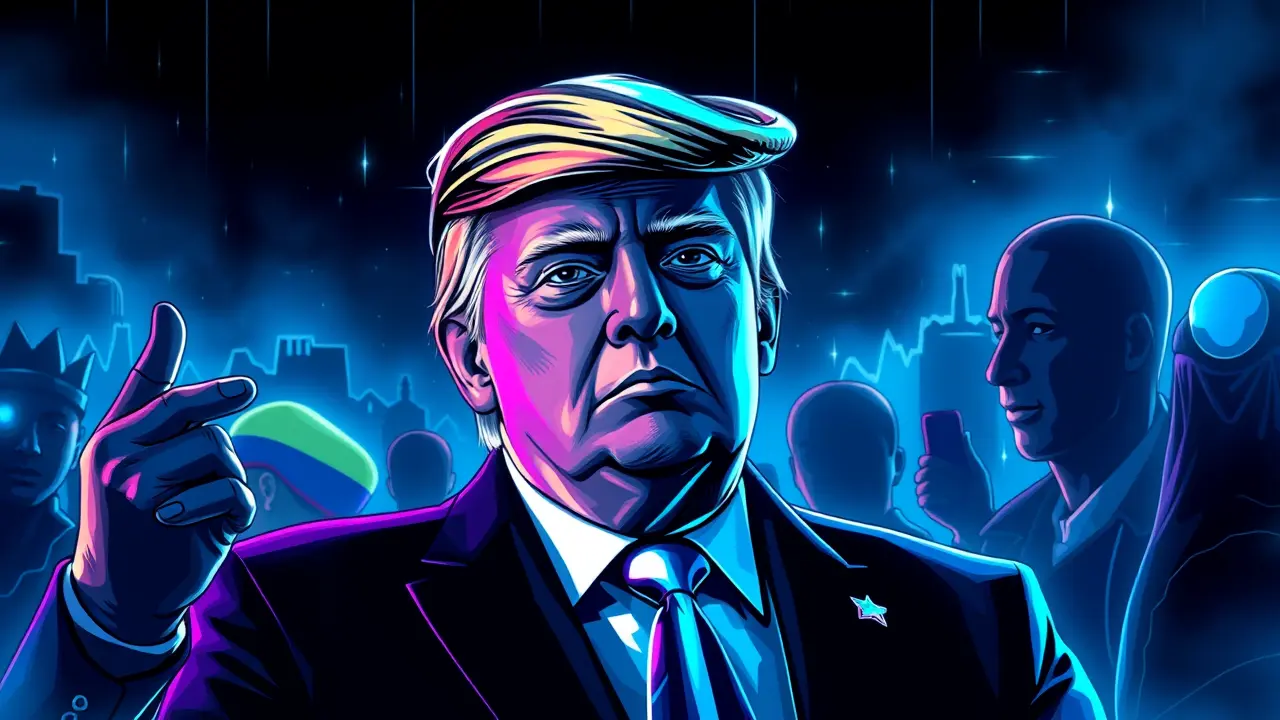
PoliticsdiplomacyBilateral Relations
Trump doubts US will go to war with Venezuela.
RO
Robert Hayes
8 hours ago7 min read
In a statement that reverberated through the corridors of power from Washington to Caracas, President Donald Trump has cast significant doubt on the prospect of the United States engaging in a direct military conflict with Venezuela, while simultaneously suggesting that the political tenure of its incumbent leader, Nicolás Maduro, is swiftly approaching its terminus. This geopolitical pronouncement, delivered with the characteristic ambiguity that often defines high-stakes diplomacy, demands a rigorous analysis not merely of its immediate content but of the profound historical and strategic currents it navigates.To comprehend the full weight of Trump's remarks, one must first contextualize them within the protracted and bitter struggle for Venezuela's soul—a nation blessed with the world's largest proven oil reserves yet crippled by hyperinflation, mass exodus, and a brutal humanitarian crisis. The Trump administration, from its outset, adopted a policy of 'maximum pressure' against the Maduro regime, implementing a stringent sanctions regime and leading a coalition of over 50 nations in recognizing opposition leader Juan Guaidó as the country's legitimate interim president in 2019.This move was a clear attempt to isolate Maduro diplomatically and economically, a strategy with historical precedents in Cold War-era confrontations, though its efficacy has been persistently hampered by the unwavering support Maduro receives from key international actors, namely Russia, China, and Cuba. The suggestion that Maduro's days are 'numbered' is not a novel refrain; it echoes the failed predictions surrounding the fall of Saddam Hussein in the lead-up to the 2003 Iraq War or the more recent, protracted demise of Muammar Gaddafi in Libya.Such historical parallels serve as a sobering reminder that forecasting the collapse of an entrenched authoritarian regime is a perilous endeavor, often underestimating its capacity for internal repression and external alliance-building. Trump's expressed skepticism about war, therefore, can be interpreted through multiple, competing lenses.On one hand, it may reflect a pragmatic assessment of the immense logistical and political costs of a military intervention in Latin America, a region where U. S.military adventures have a complex and often dark history, from the Bay of Pigs to the invasion of Panama. The potential for a protracted guerrilla conflict, the risk of destabilizing neighboring Colombia and Brazil, and the certainty of a vehement backlash from the international community present a formidable deterrent.On the other hand, this rhetoric could be a calculated strategic feint, a deliberate de-escalation designed to lower regional tensions while the administration pursues alternative, more covert means of applying pressure, or to placate a domestic audience weary of foreign entanglements after two decades of conflict in the Middle East. Expert commentary is sharply divided on the implications.Some analysts argue that this signals a potential strategic pivot, perhaps towards a more negotiated solution involving elements of the Maduro government and the opposition, a path that has been attempted and failed numerous times in Oslo and Barbados. Others caution that it may simply be an acknowledgment of the current military and political reality: that despite numerous coup attempts and widespread popular discontent, Maduro's control over the armed forces and key state institutions remains largely intact.The consequences of this ongoing stalemate are measured in human suffering. The Venezuelan economy continues its freefall, with millions lacking access to basic food, medicine, and essential services, prompting a refugee crisis of a scale unseen in the hemisphere's modern history.The geopolitical standoff over Venezuela is more than a bilateral dispute; it is a proxy conflict that reflects the broader great power competition of the 21st century, with Moscow and Beijing viewing Caracas as a strategic foothold to challenge American hegemony in its own backyard. Ultimately, Trump's dual message of military restraint and regime-change optimism leaves the future of Venezuela suspended in an uneasy limbo, a nation caught between the relentless pressure of external sanctions and the grim determination of an authoritarian government fighting for its survival, its fate hanging in the balance of a global chess game whose final moves remain profoundly uncertain.
#lead focus news
#Trump
#Venezuela
#Maduro
#US foreign policy
#war
#diplomacy
#South America
Stay Informed. Act Smarter.
Get weekly highlights, major headlines, and expert insights — then put your knowledge to work in our live prediction markets.
Related News
© 2025 Outpoll Service LTD. All rights reserved.













